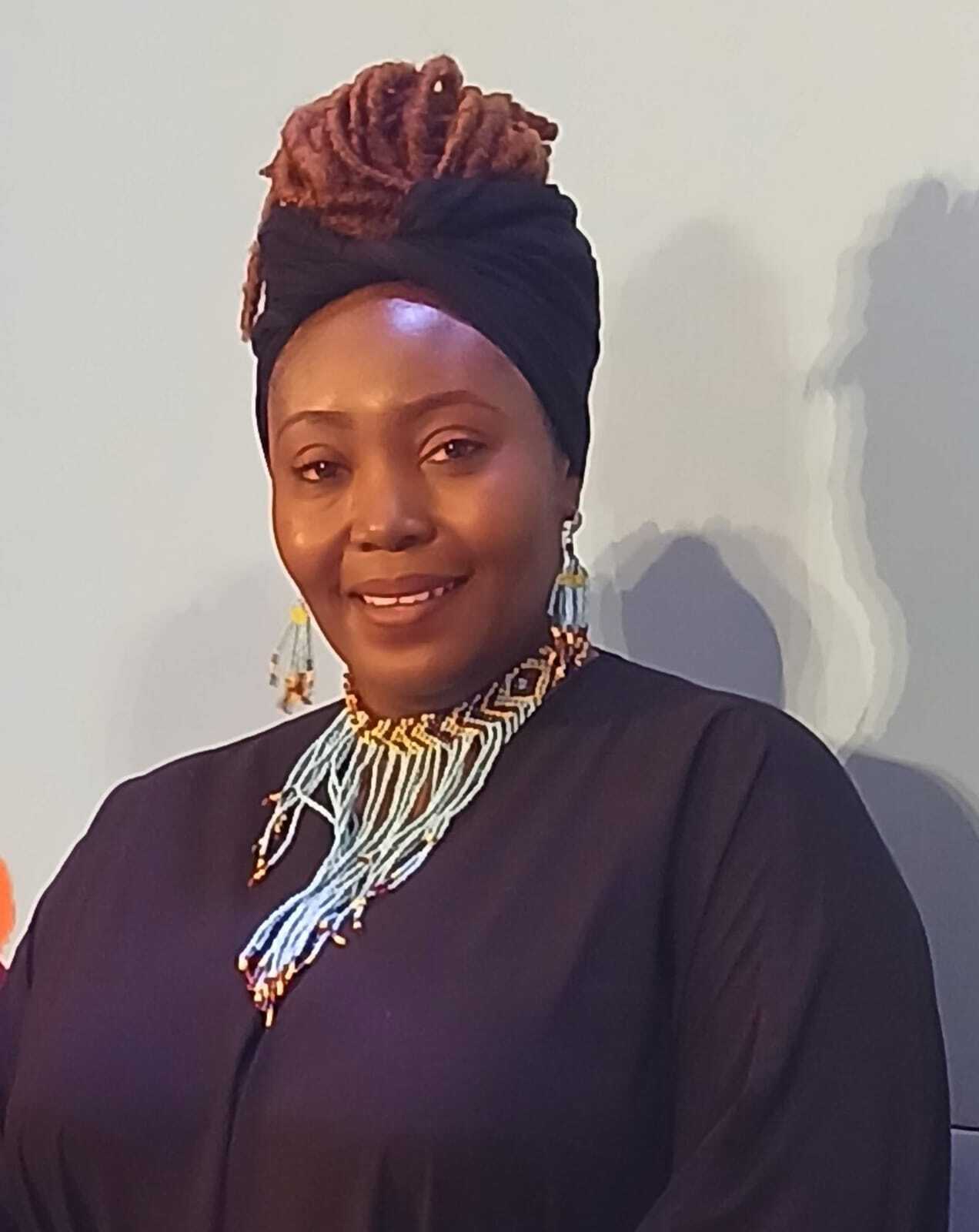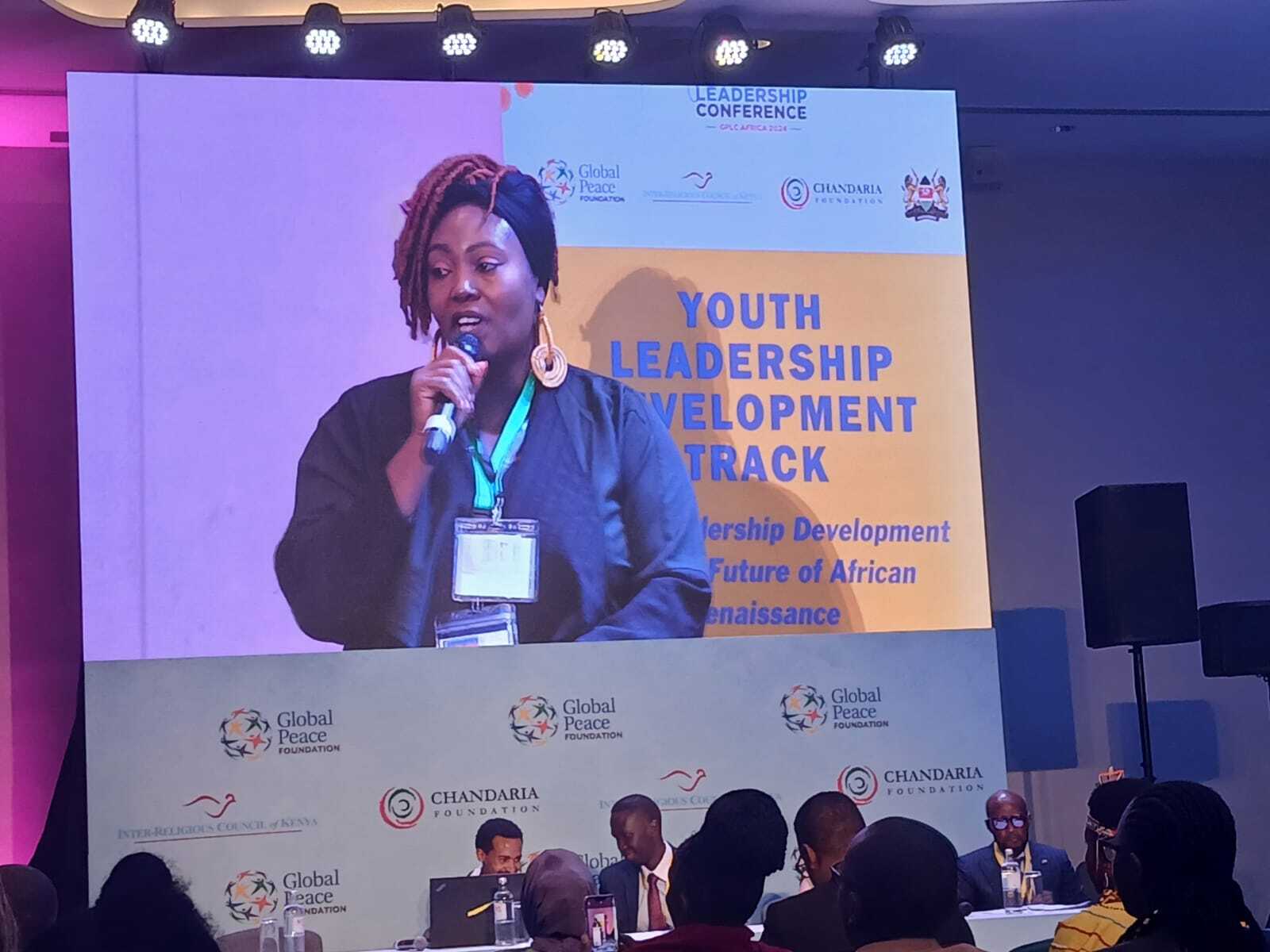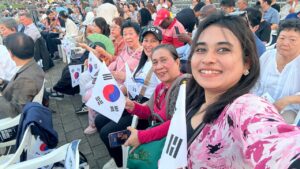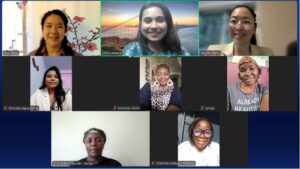“When they hear it’s something coming from another country, they become curious, especially if it’s about peace,” says Muniratu Jibrin, smiling as she recalls her recent visits to farming communities in Kano State, Nigeria. “They ask, ‘What is this Korean Dream?’ And that’s my moment to begin the conversation.”
With little internet access and many residents using only basic torchlight phones, Muniratu had every reason to be discouraged. But instead, she saw possibility. By leaning on her network of local volunteer coordinators and relationships built through past community engagements on financial literacy, she introduced the Korean Dream to four rural communities, sparking conversations about peace, unity, and shared hope.
August holds deep meaning for Koreans: it marks the anniversary of Korea’s liberation from Japanese colonial rule in 1945, a moment that should have ushered in national unity but instead led to the division of the peninsula. For peace advocates across the globe, August is not only a month of remembrance but a call to action. It’s when voices for Korean reunification grow louder, and the Korean Dream campaign gains renewed energy. It’s when individuals like Muniratu, thousands of miles from the Korean Peninsula, add their voices to a global movement.

“Now that schools are on break, we’re organizing a two-day summer boot camp,” Muniratu explains. “We’ll bring together children and their mothers. We’ll have artists for face painting, children creating art in Korean Dream colors, and special moments for parents to talk to their kids about peace in their local language.”
In Abuja, fellow Global Peace Women (GPW) project leader Aisha is planning a parallel camp, also inviting families to explore peace through fun, creativity, and meaningful conversations. “We want to catch the children before they get too busy with holiday activities,” Muniratu says. “It’s our chance to sow seeds of peace, together.”
These efforts are part of a broader initiative led by Global Peace Women and the Global Peace Foundation (GPF) to advance the Korean Dream, an aspirational vision of a free, unified Korea built on shared values, moral leadership, and the belief that ordinary people can create extraordinary change.
During a recent GPW Korean Dream Study Series Learning Circle themed “People Power and Peaceful Revolutions,” participants from across Africa and Asia reflected on how real change is sparked not by governments, but by people. Stories poured in, of women leading grassroots economic programs, of youth using social media to break HIV stigma, and of historic icons like Kenya’s Wangari Maathai, who stood for justice and nonviolence. Each example mirrored the Korean people’s peaceful struggle for independence, and the global yearning for unity and progress.
“Civil society engagement is what makes a nation,” said GPW President Hanako Ikeno during the session. “It’s the people coming together to say the problems and the solutions lie in our hands,” she said, quoting the late Dr. Edwin J. Feulner, a key American champion of the Korean Dream. His final message, “Onward to a unified Korea,” now echoes as a rallying cry for communities worldwide who believe in peace through collective will.
As the Korean Dream campaign gains momentum this August, its message is being carried by the quiet courage of people like Muniratu. “It’s a dream I believe in,” she says. “Because peace doesn’t start with leaders; it starts with us.”
Sign your support for the Korean Dream.






